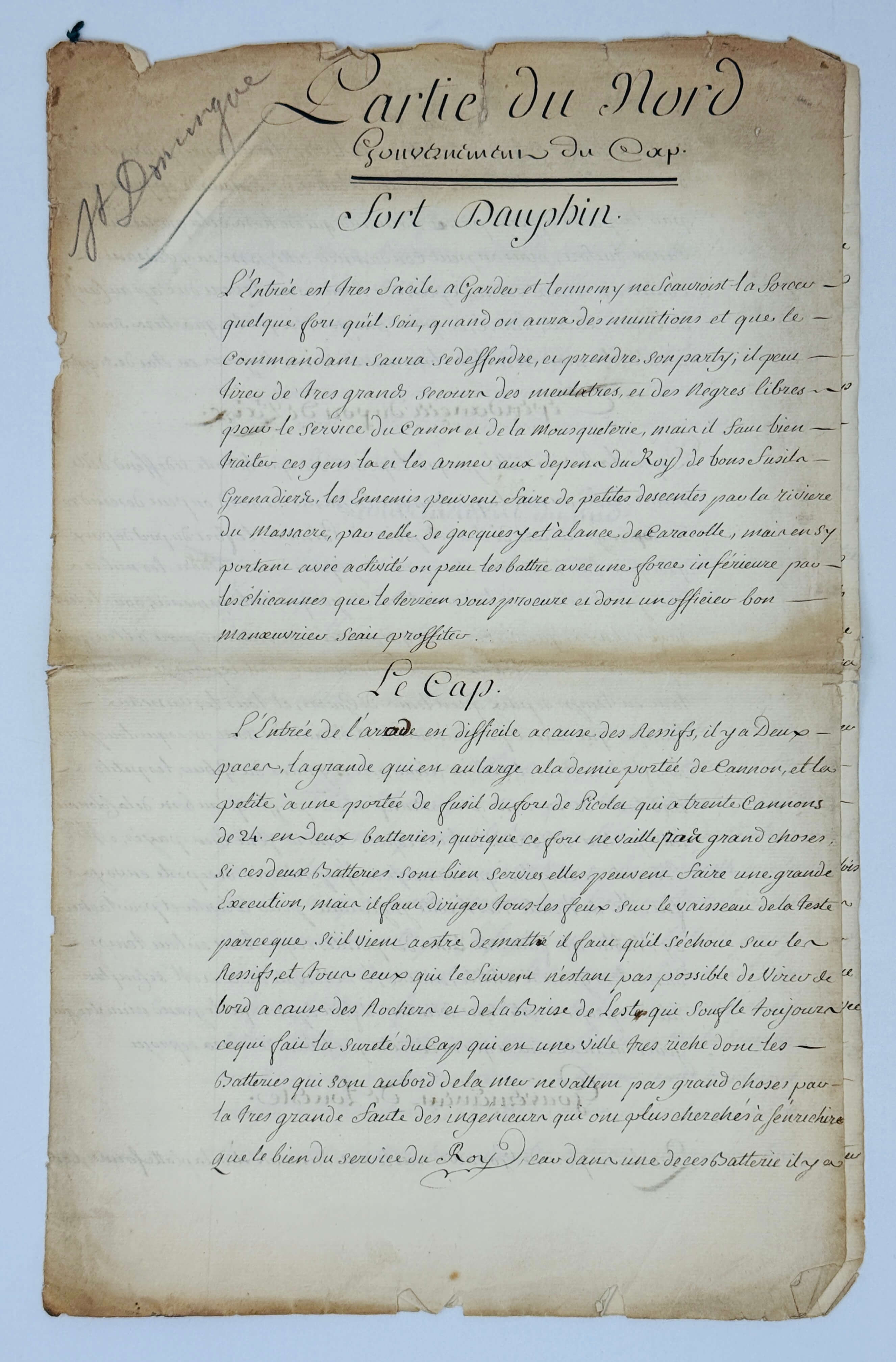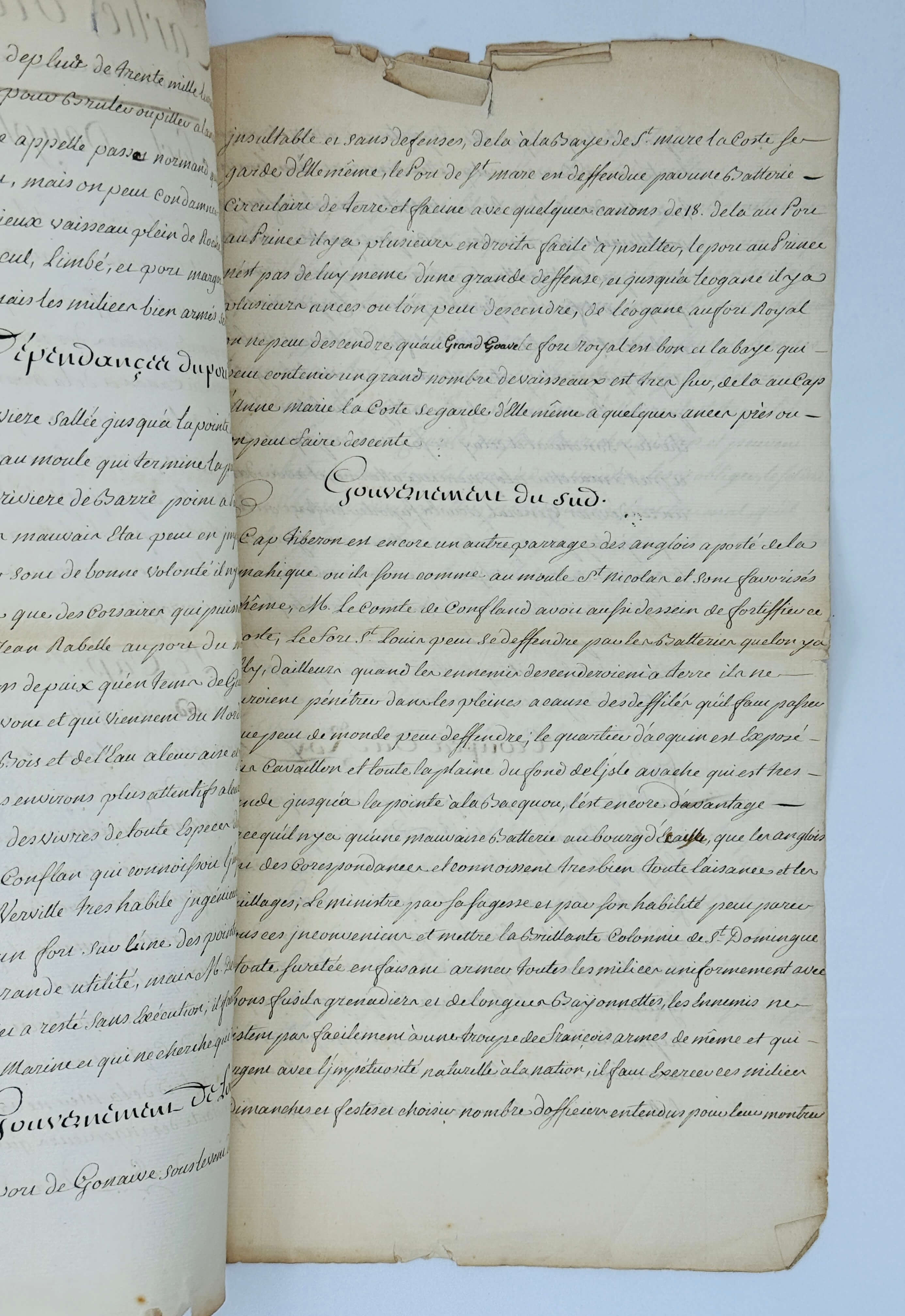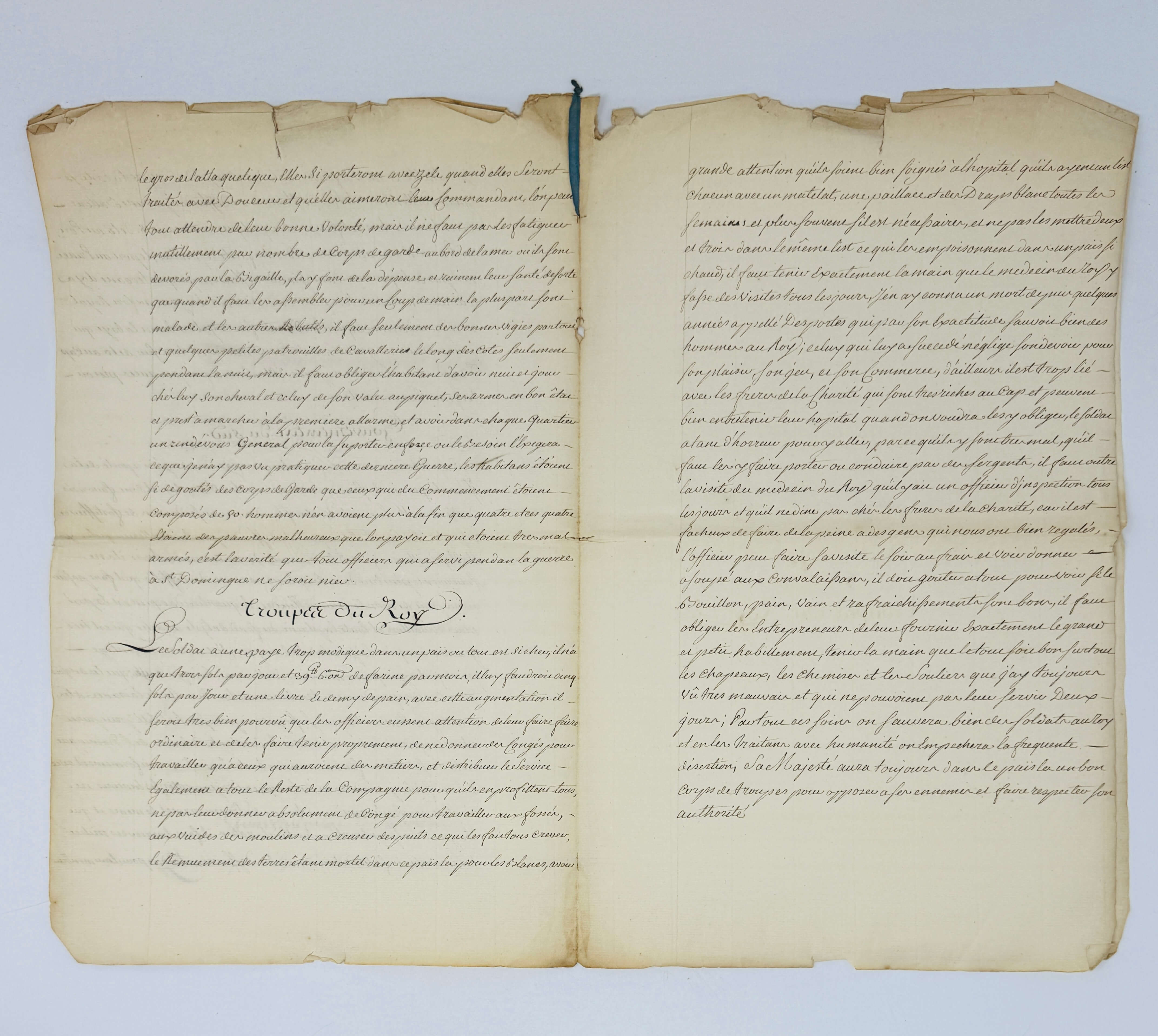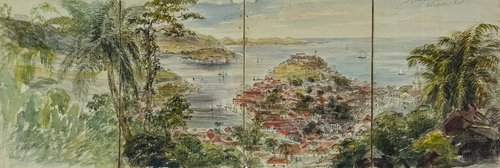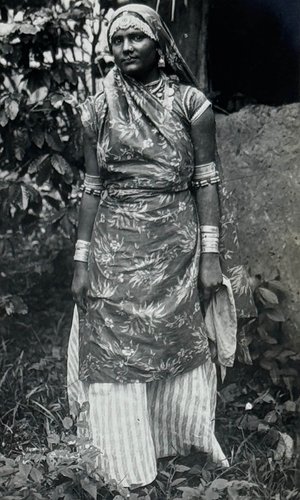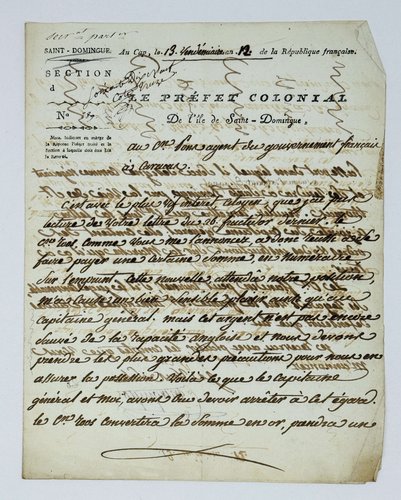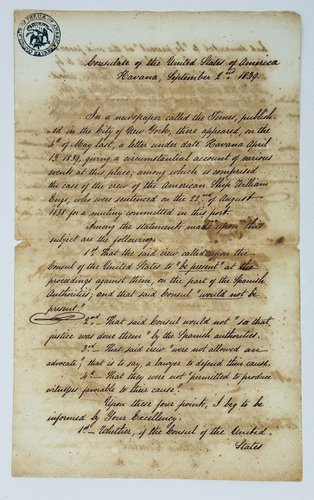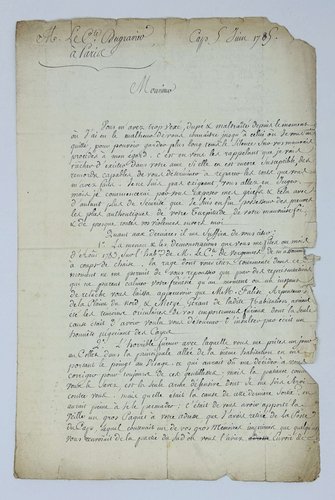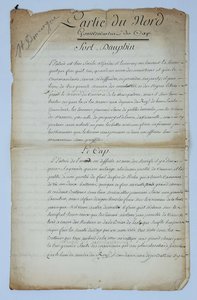
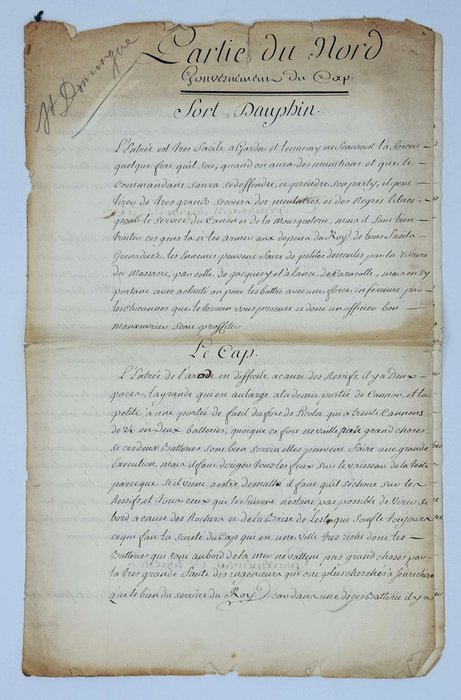
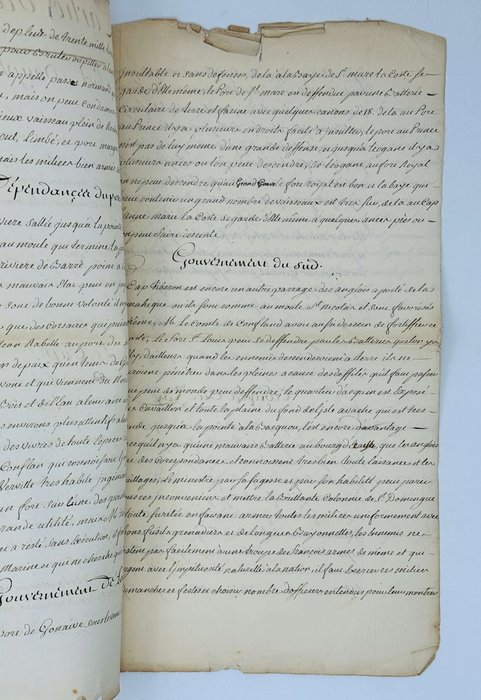
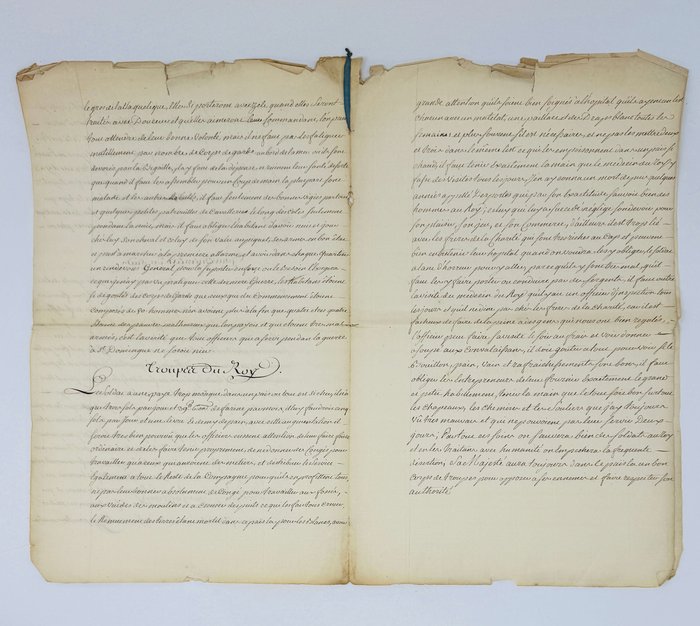
#MD31
Ca. 1745
Folio (ca. 37.5 x 23 cm or 14 ¾ x 9 in). Two bifoliums (one inserted into other, previously fastened with ribbon). 5 pp. Black ink on creamy laid paper. With an 18th century ink note on verso of last leaf dated [10 November 1745]. Paper slightly age-toned, fold marks, minor tears and creases on extremities, but overall a very good manuscript.
A manuscript document of a report on French defences in the colony of Saint-Domingue (modern-day Haiti), created around 1745. The report covers Fort Dauphin (now Fort-Liberté), Le Cap (Cap-Français, now Cap-Haïtien), and the dependencies of Port-de-Paix in the North, as well as the governments of the West and South. It also covers recommendations concerning the King’s troops.
The report was written around the time of the War of Austrian Succession (1740-1748), in which France was a major participant. The treaty ending the war was unsatisfactory for all of the signatories, eventually leading to the much larger Seven Years War (1756-1763).
The author of the report reviews the defences of Fort Dauphin, Cap-Français, the dependencies of Port-de-Paix, and the governments of the West and South. They find that Fort Dauphin is easy to defend, especially with a good commander; that a coral reef makes it harder to enter Cap-Français, but they should close “Norman Pass” by sinking an old ship full of rocks there in order to heed off privateers; and that a fort was supposed to be established near Port-de-Paix but the project seemed to have died with its engineer, and that hopefully it will be revived. They note that the government of the West has poor defences and detail the condition of the military’s troops in the government of the South. The author also makes recommendations for the King’s troops, namely increasing their pay from three to five sols per day and improving the conditions of the hospital of Cap-Français, criticizing the current doctor who “néglige son devoir pour son plaisir, son jeu, et son commerce [neglects his duty for his pleasure, his games, and his business].”
Overall, an interesting early report on the French defences of their colony, Saint-Domingue.
Saint-Domingue was a French colony on the Caribbean island of Hispaniola between 1659 and 1803. Hispaniola was totally controlled by Spain until the early 17th century, as its neglected western half was settled by French buccaneers along with the island of Tortuga (near the northern coast of Hispaniola). The French settlement was officially established in 1659 under King Louis XIV, and French control of Tortuga and the western half of Hispaniola was acknowledged by Spain in 1697. Sugar and coffee, products of Saint-Domingue’s slave plantations, made it the most prosperous French colony in the West Indies. However, by the late 18th century, an economic downturn in Saint-Domingue and the French Revolution (1789-1799) would lead to the end of the colony. The revolution spurred the Rebellion of Saint-Domingue (1791) and the start of the Haitian Revolution, which would continue for the next several years. On 1 January 1804, Haiti declared its independence, ending nearly 150 years of French rule.

